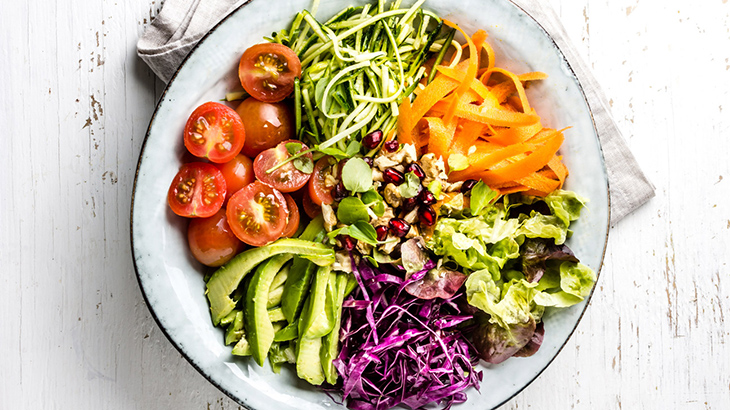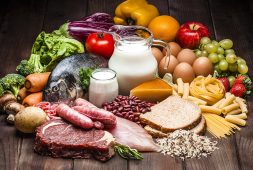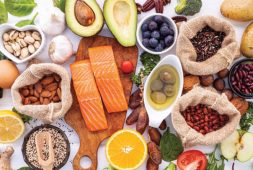
Researchers saw that those who consumed the most raw vegetables in the study performed activities that are linked to better cardiovascular health outcomes. The findings may have made the impact of veggies on their own appear to be much smaller.
Many have been making shifts in their diets for health reasons. If you’re one of those trying to include more vegetables in your daily means to improve your heart health, you may want to consider raw produce. While vegetarian casseroles and stir-fried dishes are good, raw is better. This was seen in a new study that suggests how cooked veggies may not be effective in reducing risk of developing heart disease or dying from it.
The recent study published February 21 in Frontiers in Nutrition. The experts examined data on vegetable consumption among 399,586 adults in the U.K. On average, they were 56 years old and all of them had never been diagnosed with heart disease. They then followed up for 12 years. Some of the participants experienced a total of 18,052 major cardiovascular events. Such events are heart attacks and strokes. Then, 4,406 of them passed away from cardiovascular disease.
In general, the participants of the study consumed an average of 2.3 tablespoons (tbsp) of raw vegetables and 2.8 daily tablespoons of cooked vegetables per day. The researchers compared these with those who had the highest vegetable intake. They saw that raw veggies were linked to an 11 percent lower risk of cardiovascular disease and a 15 percent lower risk of death brought about by events such as heart attacks and strokes.
As for the cooked veggies, there didn’t seem to be any heart benefit. The researchers also saw that most of the protective benefits that came with raw veggies could be directed to the differences in their overall health, lifestyle habits, and socioeconomic status.
By no means does this imply that cooked vegetables are bad, or more importantly, that they can’t be a included in a heart-healthy diet. This was stated by Alice Lichtenstein, DSc, a professor of nutrition science and policy and the director of the cardiovascular nutrition laboratory at Tufts University in Boston. “Assessing the effect of an individual food, rather than an entire dietary pattern, does not provide the whole picture and may be misleading,” Dr. Lichtenstein said. It must be noted that she wasn’t part of the study.
As for those who ate the most raw vegetables, they also engaged in other activities that are linked to better cardiovascular health outcomes. This may seem that while raw veggies did make an impact, these were not fully responsible for the person’s overall health. They also saw that those with the highest raw vegetable consumption were more likely to attend college, avoid smoking, do more exercise, get treatment if they had high cholesterol or high blood pressure, eat a good amount of fish and fruit, and lowered consumption of red or processed meat.
There’s also another possibility that the cooking methods employed made raw veggies seem to be a much healthier choice when compared to the cooked ones, said Nour Makarem, PhD, an assistant professor of epidemiology at Columbia University’s Mailman School of Public Health in New York City.
“Cooked vegetables are often consumed with seasoning and oils, thereby increasing sodium intake and making them more energy dense, which could increase the risk of heart disease,” Dr. Makarem said. He also wasn’t part of the study. Nonetheless, he shared his expert views and also added, “Cooking can also alter digestibility and bioavailability of nutrients.”
The study conducted came with a limitation. The researchers didn’t have enough data on the specific types of vegetables they consumed, how these were prepared, what proportion of their diets had come from veggies, or how many total calories they consumed for each day and each meal.
In reality, the total vegetable intake that was reported in the research was just a fraction of the U.S. dietary guidelines recommendations: 2 to 3 cups daily for women and 3 to 4 cups daily for men. In other words, a minimum of 32 tbsp for women and 48 tbsp for men. In the study, the average daily intake was merely 5 tbsp.
However, it must be said that the participants of the study are in similar company because only 1 in 10 adults get the minimum recommended daily amount of veggies. This was reported by the U.S. Centers for Disease Control and Prevention (CDC).
“The take-home is that we all need to eat more vegetables, whether they are raw, cooked, steamed, sautéed, pureed, or roasted,” Samantha Heller, RD, said. She wasn’t part of the research but she’s a senior clinical nutritionist at New York University Langone Medical Center in New York City.



